What Human Food Can Dogs Eat? Safe Snacks for Your Furry Friend
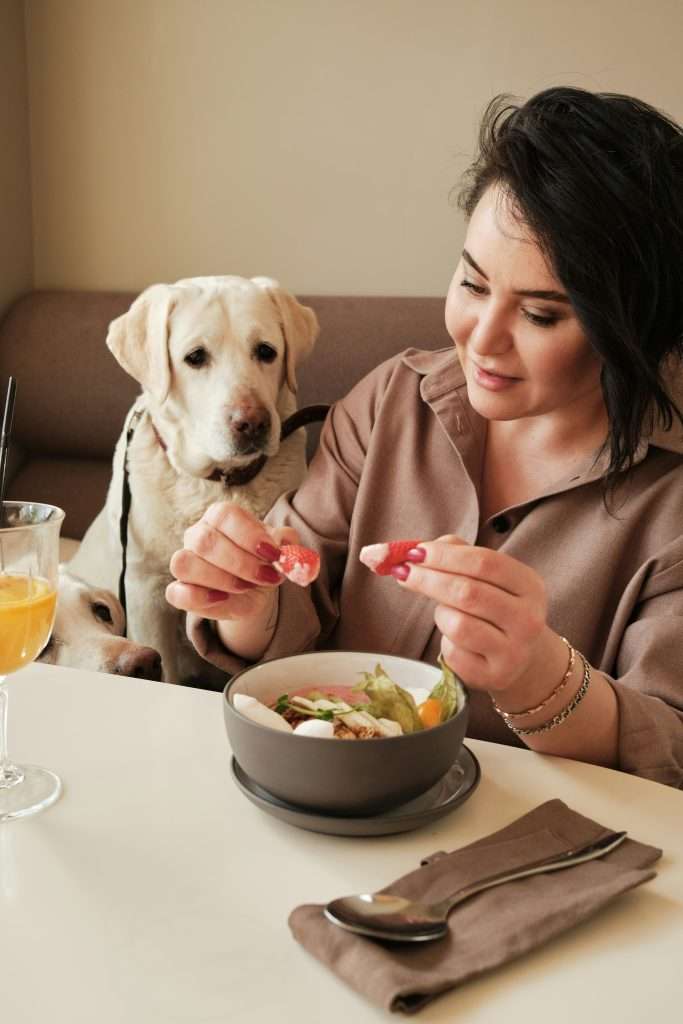
What human foods can dogs eat? Let’s dive in and see what the experts say.
Have you ever wondered what tasty human treats you can share with your furry friend? Many dog owners love spoiling their pups, but knowing which foods are safe is crucial. Dogs can safely eat many human foods, including lean meats, specific fruits and vegetables, and even some dairy products in moderation.
Feeding your dog the right human foods can be a great way to add variety to their diet and provide extra nutrients. Carrots make a crunchy, low-calorie snack packed with vitamins. Lean meats like chicken and turkey offer protein without excess fat. Even fruits like blueberries can be a sweet, antioxidant-rich treat for your pup.
But before you start sharing your plate, knowing which foods to avoid is essential. Some human foods can be harmful or even toxic to dogs. Learning the dos and don’ts of feeding human food to your canine companion will help keep them happy and healthy.
Key Takeaways
- Many fruits, vegetables, and lean meats are safe for dogs to eat
- Always introduce new foods gradually and in moderation
- Consult your vet before making significant changes to your dog’s diet
Table of Contents
Identifying Dog-Friendly Foods
Many human foods are safe for dogs to eat. You can add variety to your pup’s diet with nutritious options that provide health benefits. Let’s explore some tasty and secure choices for your furry friend.
Protein Sources
You can feed your dog lean meats like chicken, turkey, and white fish. These are excellent protein sources that are low in fat. Eggs are another excellent option, packed with nutrients.
Salmon is rich in omega-3 fatty acids, good for your dog’s coat and skin. Just make sure to cook it thoroughly.
Remember to remove bones, skin, and excess fat. Serve meats plain, without seasoning or sauces. Start with small amounts to see how your dog reacts.
Fruits and Vegetables
Your pup can enjoy many fruits and veggies as healthy snacks. Carrots are crunchy treats full of vitamins and fiber. You can serve them raw or cooked.
Apples (without seeds or core) provide vitamin C and fiber. Blueberries are packed with antioxidants.
Other safe options include:
- Bananas
- Strawberries
- Watermelon (no seeds)
- Green beans
- Cucumber slices
- Cooked sweet potato
Always wash fruits and veggies. Cut them into small, bite-sized pieces to prevent choking.
Healthy Grains
You can add some grains to your dog’s diet in moderation. Plain, cooked rice is easy to digest and can help with upset stomachs.
Whole wheat bread in small amounts is okay as an occasional treat. Oats are a good source of fiber and nutrients. Try mixing a spoonful into your dog’s regular food.
Other safe grains include:
- Quinoa
- Barley
- Corn (removed from the cob)
Avoid feeding your dog raw grains. Always cook them thoroughly and serve plain, without added salt or butter.
Dairy Alternatives
While some dogs can tolerate dairy, many are lactose intolerant. If your pup can handle it, plain yogurt is a good source of probiotics, and cottage cheese is high in protein and calcium.
You can try small amounts of:
- Plain, low-fat yogurt
- Cottage cheese
- Hard cheeses like cheddar or gouda
Start with tiny portions to see if your dog tolerates dairy well. If you notice any digestive issues, stop feeding dairy products.
Remember, human foods should only comprise a small part of your dog’s diet. Always introduce new foods slowly and in moderation. Ask your vet about what’s safe for your furry friend when in doubt.
Understanding Toxic Foods for Dogs
Dogs can’t eat everything humans can, and some foods are dangerous. Let’s look at what to keep away from your furry friend.
Common Dangers
Chocolate is toxic to dogs. Its theobromine can make them sick. Keep all types of chocolate out of reach.
Grapes and raisins are a big no-no. Even a tiny amount can hurt your dog’s kidneys, so don’t give them as treats.
Xylitol is very risky. It’s in sugar-free gum and some peanut butter. Check labels carefully.
Alcohol is never okay for dogs. Even a little can cause serious harm. Keep drinks away from your pup.
Unexpected Hazards
Onions and garlic can damage your dog’s red blood cells. This includes powder forms, too.
Macadamia nuts are bad news. They can cause weakness and fever in dogs.
Avocados have persin, which might upset your dog’s tummy. It’s best to skip them.
Caffeine is harmful. Keep coffee, tea, and energy drinks out of reach.
Health Risks
Eating toxic foods can make your dog very sick. Watch for these signs:
- Vomiting
- Diarrhea
- Weakness
- Seizures
Some foods can cause long-term problems:
- Kidney failure from grapes or raisins
- Anemia from onions or garlic
- Weight gain from too many table scraps
If your dog eats something wrong, call your vet right away. Quick action can save their life.
Remember, it’s always better to be safe than sorry. When in doubt, stick to dog food and vet-approved treats.
Treats and Snacks in Moderation
Dogs love treats, but it’s essential to choose wisely. Some human foods make great snacks for your furry friend, while others can be harmful.
Snacking Do’s
You can treat your dog to some tasty human foods in small amounts. Carrots are a crunchy, low-calorie snack packed with vitamins. They’re great raw or cooked.
Peanut butter is a favorite for many pups. Just make sure it’s unsalted and doesn’t contain xylitol, which is toxic to dogs.
Plain popcorn can be a fun treat. Skip the salt, butter, and other toppings.
Cucumbers and zucchini are refreshing, low-calorie options. They’re perfect on hot days.
Pumpkin is another healthy choice. It’s high in fiber and can help with digestion. Use plain canned pumpkin, not pie filling.
Snacking Don’ts
While some human foods are safe for dogs, others can be dangerous. Avoid giving your pup chocolate, grapes, or raisins, as these are toxic to dogs.
Avoid foods high in salt, fat, or sugar. These can lead to weight gain and other health issues.
Be careful with nuts. Some, like macadamia nuts, are toxic; others can be a choking hazard.
Watch out for seeds and rinds. Apple seeds contain cyanide, and watermelon rinds can cause tummy trouble.
Stick to dog-specific treats for regular rewards. Human snacks should be occasional, not every day.
Remember, moderation is key. Even safe foods can cause problems if your dog overeats.
Healthy Diet Routine
A good diet routine keeps dogs happy and healthy. It’s all about balance, timing, and giving them the right amount of food.
Scheduled Feeding
Set regular mealtimes for your pup. Most adult dogs do well with two meals daily—one in the morning and one in the evening. Puppies need more frequent meals, usually three to four times a day.
Stick to a routine. Your dog will get used to eating at certain times, which will also help with potty training.
Don’t leave food out all day. Free feeding can lead to overeating and weight gain.
Ask your vet about the best feeding schedule for your dog’s age, breed, and health needs.
Portion Control
Watch how much you feed your furry friend. Overfeeding can cause weight gain and health issues.
Use a measuring cup to dish out the right amount. Your dog’s food bag often has guidelines, but your vet can give you exact amounts.
Adjust portions based on your dog’s activity level. Active pups need more calories than couch potatoes.
Remember, treats count too! Limit treats to 10% of daily calories.
Keep an eye on your dog’s weight and body condition. You should be able to feel their ribs without seeing them.
Supplemental Nutrition
While good dog food should meet most needs, some pups benefit from extras. Always check with your vet first!
Omega-3 fatty acids can boost skin and coat health. Fish oil is a great source.
Probiotics may help with digestion. You can find these in yogurt or special dog supplements.
Some dogs need extra vitamins or minerals. Your vet can test for deficiencies and suggest the right supplements.
Fresh veggies make great low-calorie snacks. Try carrots or green beans for crunch!
Remember, a balanced dog food should provide the most nutrients. Don’t go overboard with extras.
Preparing Human Foods for Dogs
Knowing the right ingredients and cooking methods is essential when making meals for your furry friend. Let’s explore how to prepare human foods safely for your dog.
Safe Cooking Methods
Want to whip up a tasty meal for your pup? Stick to simple cooking methods. Boiling and steaming are great choices. These techniques keep the food’s nutrients intact without adding extra fats or oils.
Try boiling lean meats like chicken or turkey. It’s an easy way to cook protein for your dog. Just remember to skip the seasoning!
Steaming is perfect for veggies. It softens them up, making them easier for your dog to munch. Plus, it keeps all the good stuff in.
Baking is another option. It’s excellent for lean meats and some veggies. Just keep an eye on the oven to avoid burning.
Ingredients to Include
Ready to fill your dog’s bowl with yummy, healthy foods? Here’s what to add:
- Protein: Lean meats like chicken, turkey, and fish are great choices. They give your pup the energy they need.
- Veggies: Carrots, green beans, and sweet potatoes are dog-friendly. They’re packed with vitamins and fiber.
- Fruits: Apples (without seeds) and blueberries make tasty treats. They’re full of antioxidants.
- Healthy fats: Some olive or fish oil can be good for your dog’s coat.
- Grains: Plain, cooked rice or oatmeal can be easy on your dog’s tummy.
Remember, moderation is key! These foods should complement, not replace, your dog’s regular diet.
Ingredients to Exclude
Watch out! Some human foods can be harmful to your furry friend. Here’s what to keep out of your dog’s dish:
- Onions and garlic: These can damage your dog’s red blood cells.
- Chocolate: It’s toxic for dogs and can cause serious health issues.
- Grapes and raisins: They can lead to kidney problems in dogs.
- Avocado: The pit and skin are hazardous.
- Xylitol: This artificial sweetener is very toxic to dogs.
Also, avoid adding salt or spices to your dog’s food. Plain is best! And never give your dog raw or undercooked meat. It can contain harmful bacteria.
Remember, when in doubt, ask your vet. They can give personalized advice on what’s safe for your pup to eat.
When to Consult Your Vet
Talk to your vet about your dog’s diet. This is key for their health and well-being. Your vet can guide you on food changes and spot signs of food issues.
Dietary Changes
Are you thinking of changing your dog’s food? Talk to your vet first. They can help you make safe choices. Your vet knows your dog’s health needs best.
Don’t make quick food changes. This can upset your dog’s tummy. Your vet can tell you how to switch foods slowly. They might suggest mixing old and new food at first.
Ask your vet about adding human foods to your dog’s diet. Some human foods are safe for dogs, but others can be harmful. Your vet can guide you on what’s okay and how much to give.
Food Intolerance Signs
Watch for signs that your dog isn’t handling food well. These can include:
- Throwing up
- Loose stools
- Itchy skin
- Ear infections
- Gassy tummy
If you see these signs, call your vet right away. They can help find out what’s causing the problem. Your vet might suggest tests to check for food allergies.
Some dogs might get sick from raw foods. These can have harmful germs. Your vet can tell you if raw food is safe for your dog. They can also check for parasites that might come from food.
Frequently Asked Questions
Dogs can safely enjoy many human foods. Let’s explore some common questions about what you can share with your furry friend.
What are some lean meats that are safe for my dog?
You can safely feed your dog lean meats like chicken, turkey, and white fish. These options are low in fat and easy on your pup’s tummy.
Remove all bones and skin before serving. Cook the meat plainly without any seasonings or oils.
Can dogs eat fresh vegetables, and if so, which ones?
Yes, dogs can eat many fresh veggies! Carrots are a great choice. They’re low in calories and packed with vitamins.
Other safe options include green beans and sweet potatoes. Always cook or steam veggies before giving them to your dog.
Which fruits can I safely feed my dog?
Treat your dog to fruits like apples, blueberries, and bananas. These fruits are full of vitamins and antioxidants.
Remember to remove any seeds or stems. Cut the fruit into small, bite-sized pieces to prevent choking.
Are there any vegetables that I should avoid giving my dog?
Some veggies can be harmful to dogs. Avoid giving your dog onions or garlic, as they can damage your dog’s red blood cells.
Also, keep raw potatoes away from your pup. Cooked sweet potatoes are okay, but raw white potatoes can be toxic.
What are some quick human food options I can safely feed my dog?
You can give your dog a small piece of cooked salmon for a quick snack. Salmon is packed with protein and omega-3 fatty acids.
Plain, cooked chicken is another fast option. As a treat, offer a spoonful of plain, low-fat yogurt.
How can I identify which human foods are toxic to dogs?
Learn about common toxic foods like chocolate, grapes, and avocados. Keep a list on your fridge for quick reference.
Always check with your vet before giving your dog new foods when in doubt. It’s better to be safe than sorry!
Related article: Can Dogs Eat Pecans? Uncovering the Nutty Truth


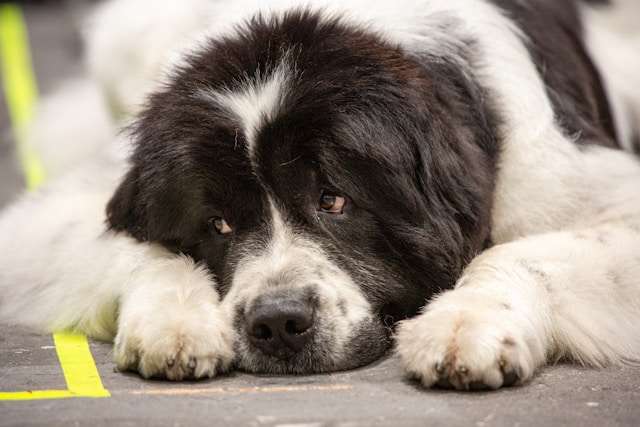
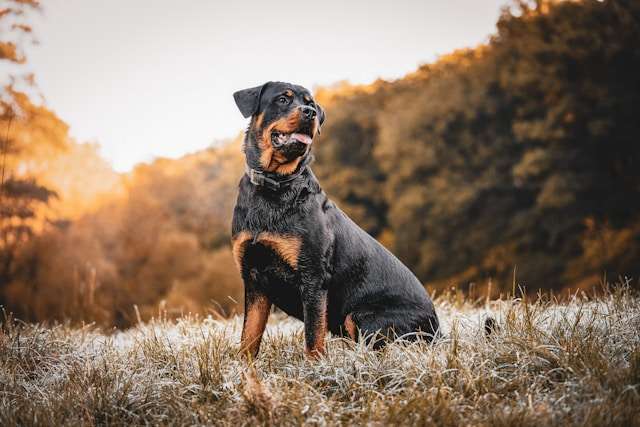
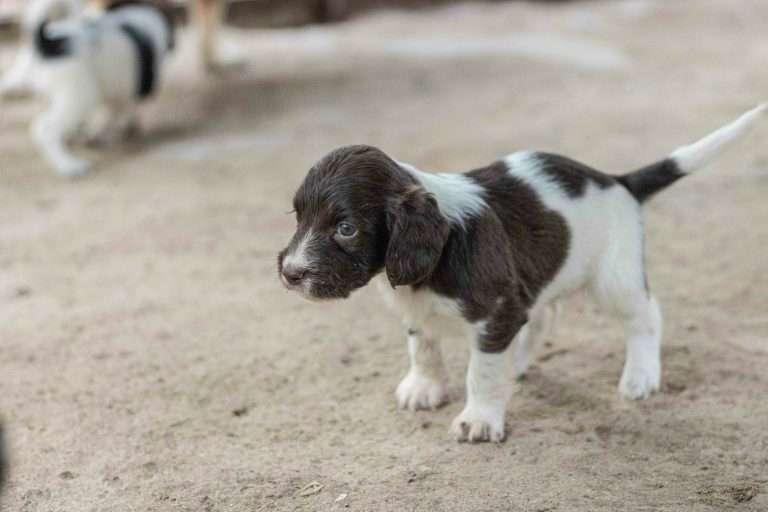
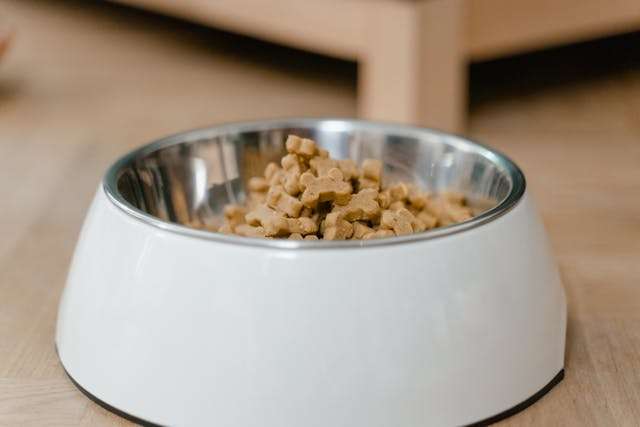
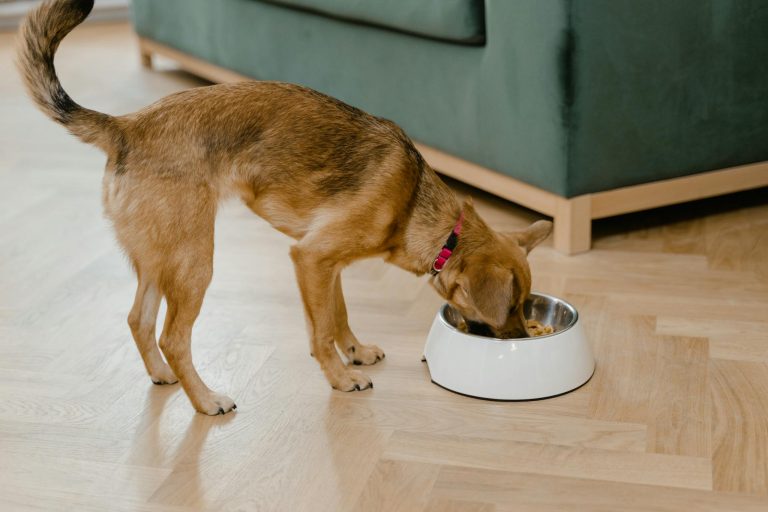
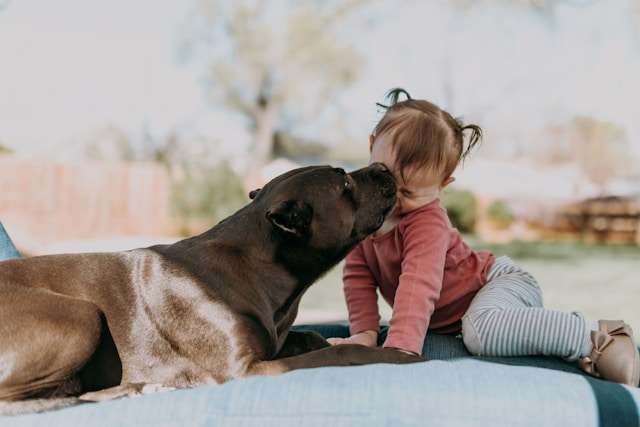
Can you be more specific about the content of your article? After reading it, I still have some doubts. Hope you can help me.
What would you like to know?